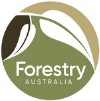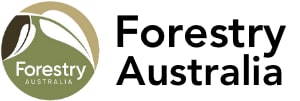
MEDIA RELEASE
Wednesday 4 May 2022
Next government must prioritise active and adaptive forest management
The peak organisation representing over 1,000 forest scientists and professional land managers has called for all major parties to prioritise policies which promote active and adaptive management of Australia’s forests.
Forestry Australia President Bob Gordon said active and adaptive management would ensure Australia’s forests can continue to benefit society and the environment in multiple ways for decades to come.
“It is vital that active and adaptive management of our forests is a policy priority for Australia’s next government,” Mr Gordon said.
“Government policy in Australia has been guided by the National Forest Policy Statement (NFPS), which was signed by the Australian Government and all mainland state and territory governments in the early nineties.
“At the time there was bi-partisan support for a national forestry policy statement adopted by all governments. A revised vision and a contemporary NFPS to guide future forest management in Australia should now be a priority action, to accommodate the many issues that have emerged or become more prominent in subsequent decades.
“Those issues include notable key themes: mitigation of and adaptation to the impacts of climate change, noting that sustainable forest management has an important role to play in mitigating the impacts of climate change, but also transitioning to a lower carbon economy.
“We also need to focus on establishing shared governance models that strengthen recognition of the culture, knowledge, values and rights of Aboriginal and Torres Strait Islander peoples, through Traditional Owners and Registered Aboriginal Parties.
”Simply setting aside native forests in conservation reserves does not guarantee protection of biodiversity, particularly from the broader threats of wildfires, invasive species and climate change.
“Where natural ecosystems have been disturbed, or are at risk of human impacts, active forest management by those trained in the science of forest land management is required to maintain structural forest diversity and resilience and a capacity to recover from this range of threats.
“Many diverse policies and regulations at all levels of government carry the prospect of unintended consequences for the forestry and forest products sector – for example, trade; infrastructure; environment; water; and land use planning. We would like to see a framework introduced whereby forestry professionals, growers and processors are consulted wherever a policy or regulation may have an impact directly or indirectly on the sector.
“Forests are managed over very long timeframes and long-term vision and planning is required.
“That is why bipartisan support for proactive measures which focus on active and adaptive land management are so important if we are to achieve the social, economic, environmental and carbon capture potential of Australia’s forest estate, and ensure it can benefit the nation for generations to come.”
Media contact:
David Abbott
Font PR
0400 446 736
davida@fontpr.com.au

